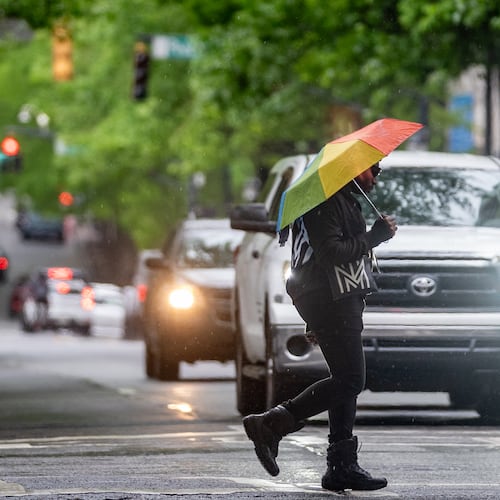East Point has become just the second city in Fulton County -- and one of a handful statewide -- to adopt protections for its gay and transgender employees.
The local law prohibiting discrimination based on sexual orientation and gender identity, approved by the City Council earlier this week, is almost an afterthought in a city that has offered same-sex domestic partner benefits for employees since 2005.
The city charter also includes a Bill of Rights section that says the city will not adopt any laws that intentionally discriminate against gays and lesbians.
“We had to make sure that we had a good policy in place for employee protection,” said Lance Rhodes, the openly gay councilman who championed the measure. “We have to talk about what’s good for all of our employees.”
The unanimous vote came just a month after two openly gay candidates posted strong showings in City Council elections, though not enough to win office.
In recent years, the city has gained a reputation as gay-friendly, which has led to some conflicts in and out of City Hall. The domestic partner benefit, for instance, won on a 4-3 vote.
Councilman Greg Fann was among those who cast dissenting votes in 2005 on the domestic partner benefit. This week, one of his last votes on the council was to approve the nondiscrimination policy.
Fann, a minister at Liberty International Church, said he supported the latest measure out of a sense of fairness.
“My religious values do not afford me to agree with an alternative lifestyle, but that does not mean you can discriminate against someone for that lifestyle,” Fann said. “I do not believe in discrimination, period.”
This week’s vote caps a flurry of similar laws adopted in the past two years by cities in the metro area.
Just last month, Chamblee joined Atlanta, Clarkston, Decatur and Doraville in prohibiting discrimination against gay employees.
In addition to East Point, only Atlanta, Decatur and Doraville extend that protection to transgender workers, or those whose outward appearance or gender identity doesn't match their gender at birth.
“I hope some of our elected officials are realizing our gay and lesbian community is growing so much they can’t ignore them,” Rhodes said.
About the Author
The Latest
Featured

